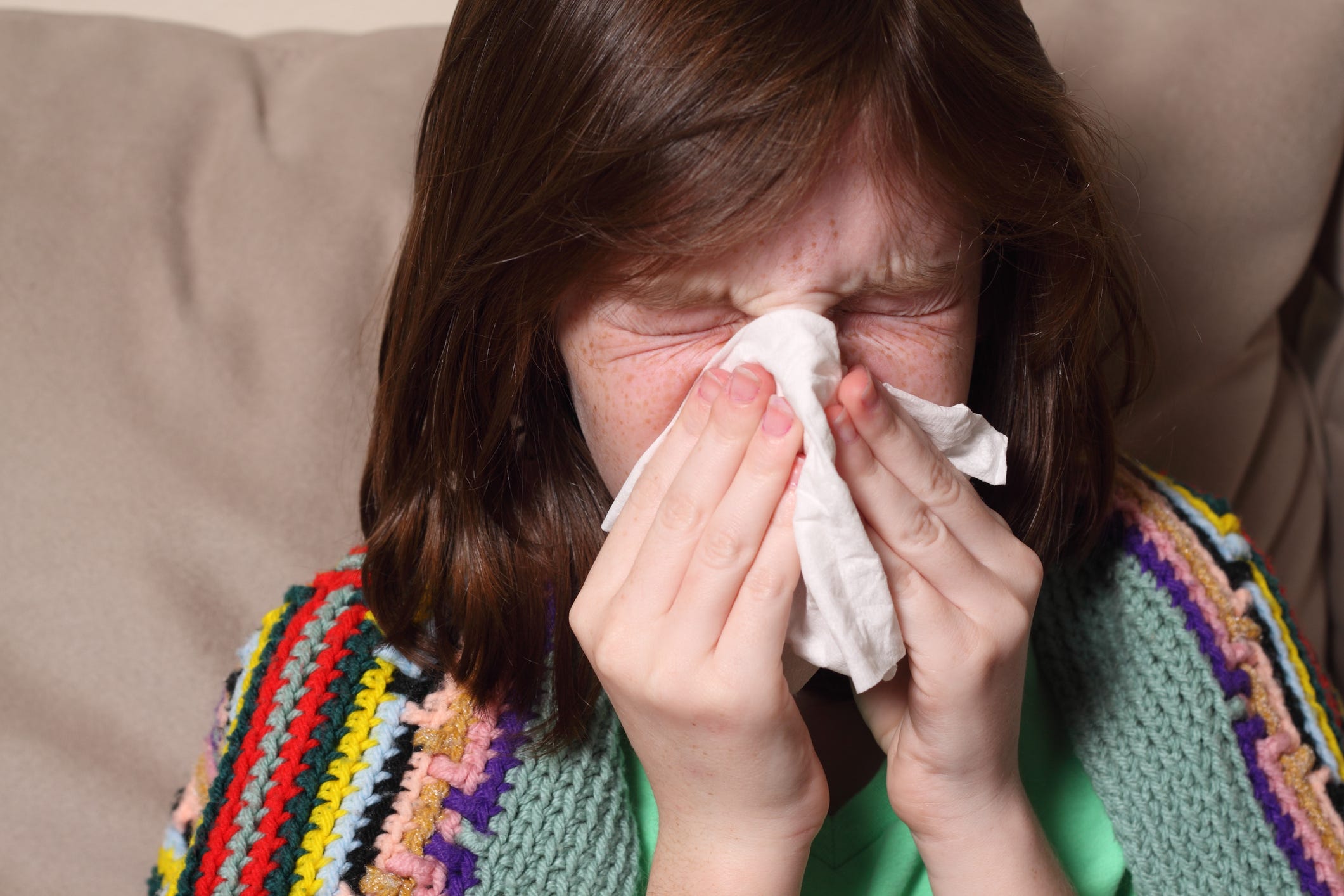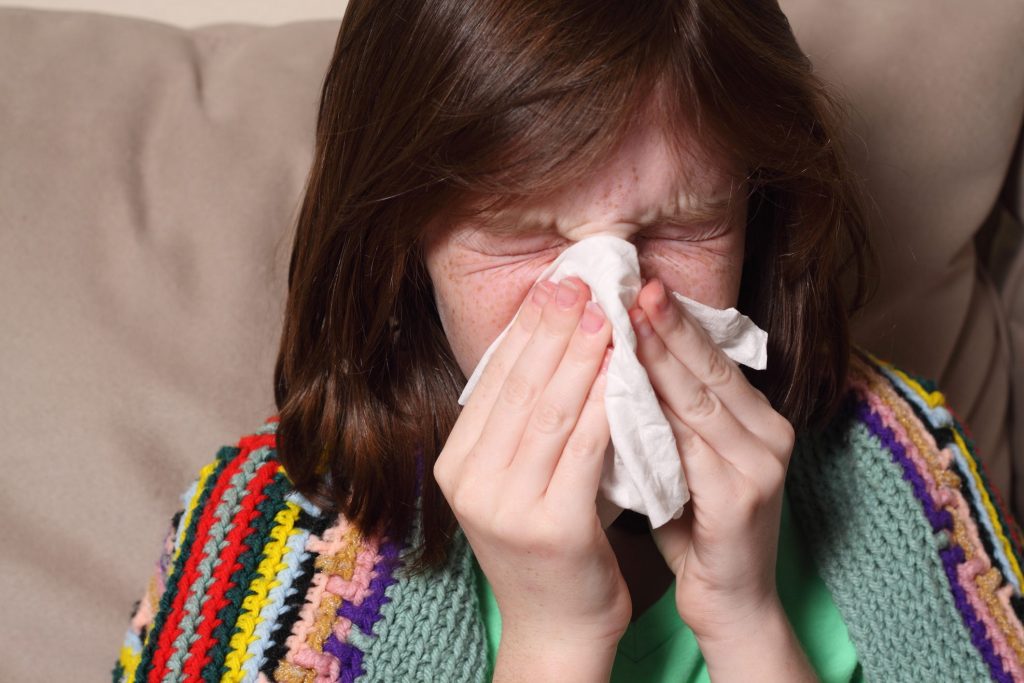
princessdlaf/Getty Images
- A stuffy nose happens when the blood vessels and natural tissues in your nose get inflamed.
- If your stuffy nose is from allergies, antihistamines can help relieve congestion.
- If it's from a cold or the flu, breathing in humid air may help soothe your sinuses.
- Visit Insider's Health Reference library for more advice.
Nasal congestion is one of the most frequent symptoms that primary-care and specialist clinics hear from their patients.
What causes a stuffy nose
The main reasons could be an illness like the cold or flu. Or it could be allergies, traffic smoke, or even pregnancy.
- Cold and flu: When you have a viral infection like the cold or flu, your sinuses produce mucus to help the virus drain out, says Dina Kulik, MD, an assistant professor in the department of pediatrics at the University of Toronto.
- Allergies: When you have allergies, the body releases a chemical called histamine, which is what triggers inflammation in your nasal passage, clogging it up.
- Pregnancy: An estimated 30% of pregnant women suffer from significant nasal problems, which are often the result of an increase in pregnancy-related hormones that tamper with the nasal tissue and blood flow in the nose and can cause a number of symptoms including a stuffy nose. But if a stuffy nose is accompanied by other cold-like symptoms, then this could be the result of more intense cold symptoms during pregnancy.
Regardless of the cause, a stuffy nose almost always comes down to the same problem: Some of the blood vessels and natural tissues in your nose, called the mucous membrane, are inflamed, which is what's blocking your airway and causing congestion.
To get rid of that stuffy feeling, all you need to do is reduce the inflammation. And there are several ways to achieve that, from natural home remedies to over-the-counter medicines.
How to clear a stuffy nose
You should first determine whether your stuffy nose is from allergies or from a virus like the common cold. If your stuffy nose is from the cold, flu, or some other common infection, your go-to remedies are:
- Humid air: First, if you're at home with no medicine in your cabinet, try a steamy shower or humidifier. "The moisture in the air from a shower or humidifier acts to soothe the irritation in the nose and sinuses, helping release mucus," Kulik says.
- Decongestants: But if you're shopping for the over-the-counter treatments, decongestants, such as pseudoephedrine, will reduce the tissue swelling and may help offer congestion relief.
If allergies are the cause for your discomfort, antihistamines and intranasal corticosteroids can help. But be careful because some types of antihistamines can cause drowsiness.
If it's something else causing your stuffy nose, Kulik suggests saline sprays for quick, easy relief. If you're using a saline spray on your infant, parents will need to use an aspirator or nasal bulb to remove any remaining mucus. Likewise, you can also use a neti pot for quick relief.
Also, your sleeping position can help clear things out. Check out our other article for information on how to sleep with a stuffy nose.
There's a chance that you could develop sinusitis. Sinusitis is the medical term for congested facial sinuses. When sinusitis accompanies a head cold, it does not require antibiotics and is not usually a cause for concern.
Insider' takeaway
You need to know what's causing your stuffy nose in order to treat it effectively. If your stuffy nose is due to allergies, for example, then antihistamines and intranasal corticosteroids can help. But if your congestion is due to the common cold or the flu, a humidifier or decongestant is your best bet.
